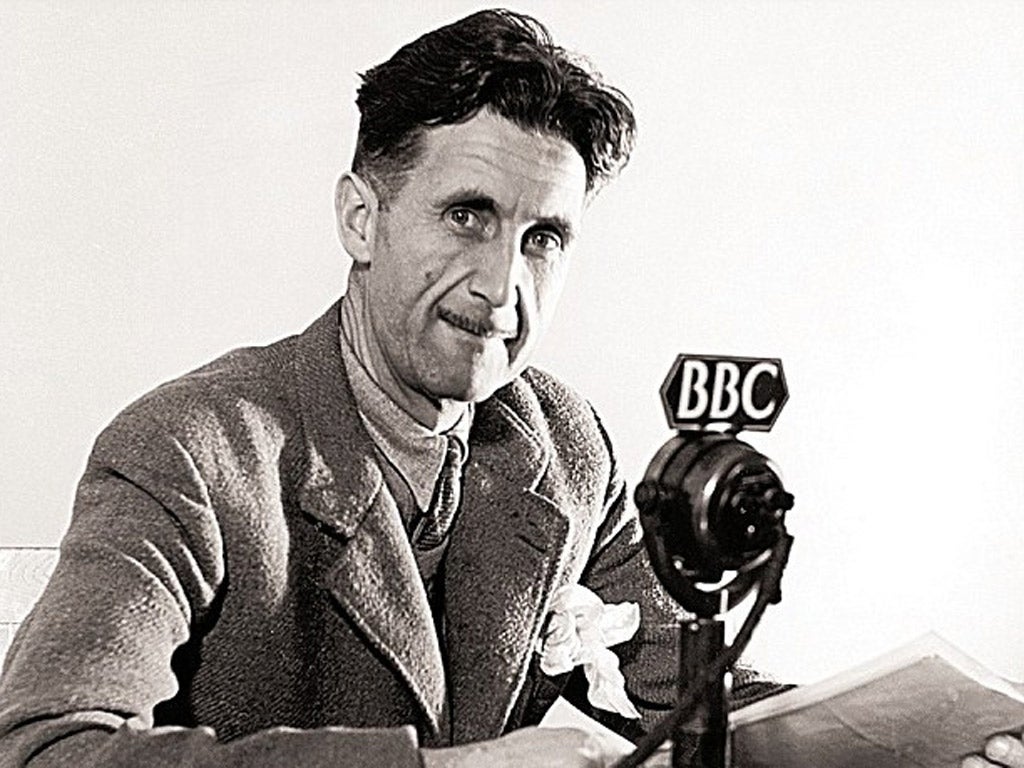Seeing Things as They Are: Selected Journalism and Other Writings by George Orwell, book review: Different era, same issues
Much of what Orwell wrote has a startling resonance today

Your support helps us to tell the story
From reproductive rights to climate change to Big Tech, The Independent is on the ground when the story is developing. Whether it's investigating the financials of Elon Musk's pro-Trump PAC or producing our latest documentary, 'The A Word', which shines a light on the American women fighting for reproductive rights, we know how important it is to parse out the facts from the messaging.
At such a critical moment in US history, we need reporters on the ground. Your donation allows us to keep sending journalists to speak to both sides of the story.
The Independent is trusted by Americans across the entire political spectrum. And unlike many other quality news outlets, we choose not to lock Americans out of our reporting and analysis with paywalls. We believe quality journalism should be available to everyone, paid for by those who can afford it.
Your support makes all the difference.George Orwell’s work has endured because, as well as challenging injustice and bigotry, he frequently confronted his own contradictions.
Compiled by the renowned academic Peter Davison, Seeing Things As They Are includes extracts from Orwell’s wartime broadcasts for the BBC, arts reviews and his “As I Please” column for the left-wing magazine Tribune as well as an eclectic mix of articles and essays from other journals.
Much of what he writes has a startling resonance today. Of English xenophobia in the years before the war, Orwell noted “a resentment of these foreigners who were supposedly taking Englishmen’s jobs” and that it was “largely Trade Union opposition that prevented a big influx of German Jewish refugees”. In 1946, he wrote a piece for Tribune, entitled “Polish immigrants”, about the outcry “against allowing Poles to work in the two places where labour is most urgently needed – in the mines and on the land”. Orwell derided the “out of date notion that Britain is overpopulated and that more population means more unemployment” and claimed that “British prosperity depends largely on factors outside Britain”. What would Orwell have made of the current debates around immigration and the plight of Syrian refugees?
Orwell wrote damning articles on class and privilege; subjects that remain depressingly familiar. For the July-August 1942 edition of Partisan Review, Orwell remarked “you can only get certain jobs if you have been to one of the right schools, and if you fail and have to be sacked, then somebody else from one of the right schools takes over, and so it continues”. (Orwell went to Eton.) In the same issue he criticised “the widespread evasion of Income Tax … nothing happens because the will to crack down on it is not there while money and political power more or less coincide”.
He viewed the persecution of writers in the USSR in 1947 as an affront against creativity: “You cannot produce a vigorous literature by terrorising everyone into conformity. A writer’s inventive faculties will not work unless he is allowed to say what he feels.” Orwell also displayed a keen sense of humour. Realising that there would be scant opportunity for over-indulgence during the Christmas of 1946 he wished his readers “half a turkey, three tangerines, and a bottle of whisky at not more than double the legal price”.
Join our commenting forum
Join thought-provoking conversations, follow other Independent readers and see their replies
Comments